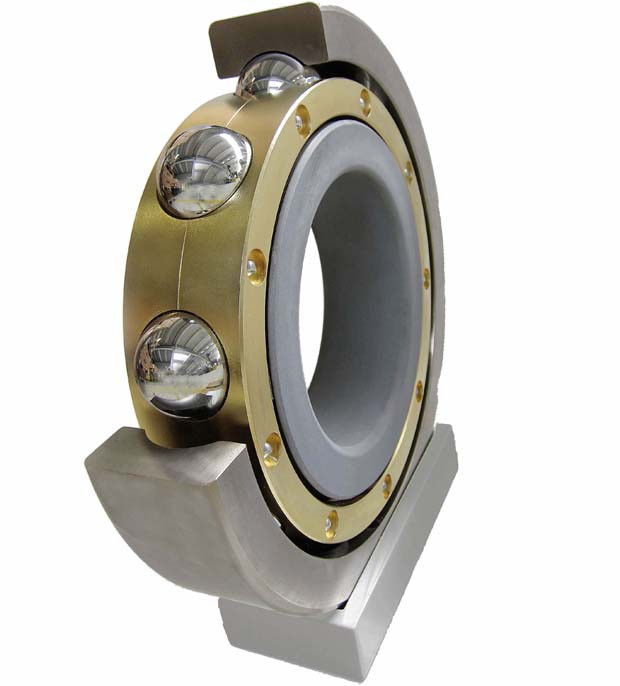Electrically insulated bearings
04.07.2019

Electrically insulated bearings have electrical insulation that is built into the bearing, providing reliable protection against current passage and electrical corrosion. Typical applications are electric motors, generators and other electrical machines.
A difference in electrical potential between the outer and inner ring of a rolling bearing can lead to electric current that permanently damages the bearing’s raceways and impairs its running characteristics. A current flow results in electrical discharge in the contact zone between the rolling elements and the inner or outer ring. This, in turn, causes local melting of the surfaces. The result is material transfer and local microstructural damage. This leads to a very thin layer of the eroded surface being re-hardened, making it prone to cracking. This process is called electrical corrosion and often affects bearings in electromechanical applications, such as generators and electric motors, but also machines that are powered by electric motors, such as pumps and gearboxes.
In addition, the electric discharge damages the lubricant. The base oil and additives contained in the lubricant oxidise, resulting in the characteristic black colour of the lubricant. Premature ageing permanently impairs the lubricant’s ability to form a separating layer between the metal surfaces. It is imperative that customers choose the right bearing for the application, so that it can properly do its job.




